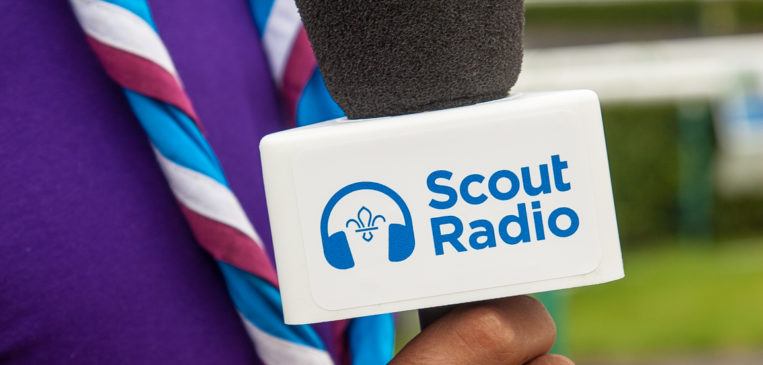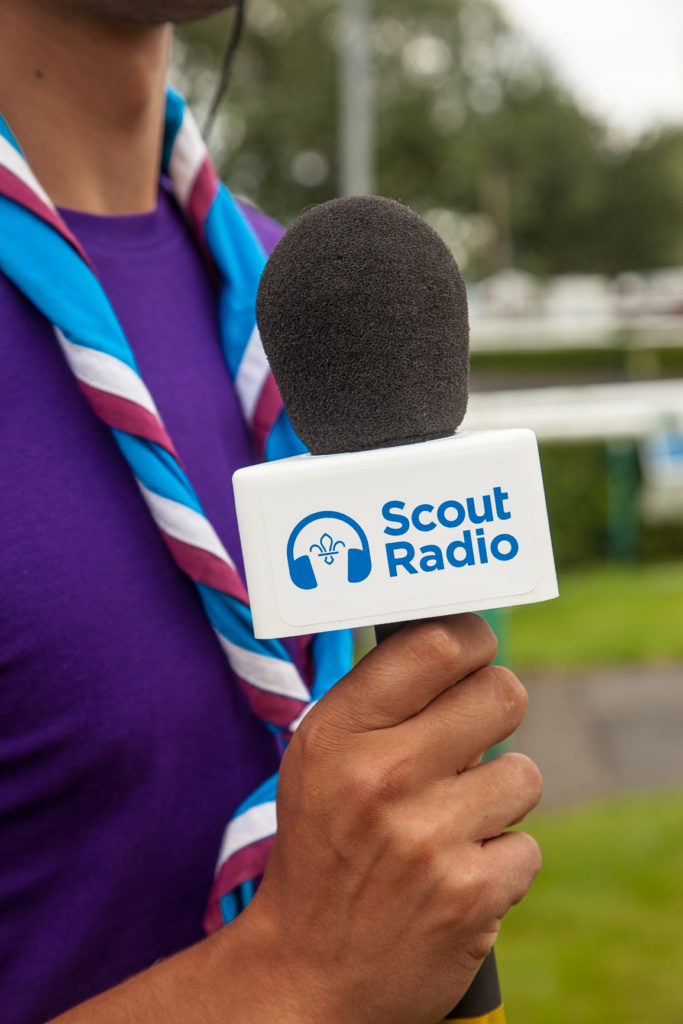
We’re always looking for new content especially if its produced by or with young people. And we’d love to hear whats happening locally in your area. We’ll play our favourites on air and put the reports on our website player for everyone to listen to
If you are interested in becoming a local correspondent for scout radio email [email protected] for more information, or you can send us a single report whenever you like.

Here are some tips to help you make your report.
Recording Device
There are several types of devices you can record a voice report on. If you already own a device such a Zoom, Edirol or similar then that’s great, use that.
If you don’t have one of these recording devices that’s fine, you can use your phone.
The microphones in smartphones are exceptional these days, and many professional radio stations use them to record reports on the go. It means you always have a quality mic in your pocket wherever you are.
Most phones these days come with a recording app. There are also several on respective app stores.
If you’re using an iOS device then the built-in voice memo app is just fine.

When you are using the device to record make sure the microphone is pointing at either yourself or your contributor. Don’t hold the phone like you are making a call. Use it like you would use a normal microphone.
While the quality of microphone in smartphones is very good, they are very susceptible to wind noise and what we call ‘popping’. You may have seen most microphones have some sort of pop shield in front of them. Popping occurs when certain letters forcefully push air against the microphone diaphragm, causing it to vibrate harder. These letters are usually B D and P, so if you are saying words with these letters in, watch out.
A good way to overcome this is to stick something over your phone’s microphone to act as a pop shield. Thin fabric is often best, such as a sock or an old pair of tights. Alternatively position your microphone so the air is passing over it, not going directly into it. For example holding your phone below your mouth as opposed to in front of it. It’s not essential, but it can make a big difference.
Remember to experiment with your phone and how it sounds. Practise with a few dummy recordings first and get to know how your phone reacts to different positioning when recording. Do you need it closer to your mouth? Does it pick up on any rustling noise as you reposition it?
Interviews
When interviewing, remember to ask questions that will give you a good response, not just one word answers. These are called open questions and closed questions.
For example:
Q: “Did you have a good time at Scout Camp?”
A: “Yes”
This is a question that doesn’t give us much insight into the event. This is a closed question.
Q: “What made your scout camp so enjoyable?”
A: “The camp was so enjoyable because….”
This is an open question because it gives the contributor an opportunity to explain why the event was good and gives the interview colour. Always try to ask questions where your interviewee will give you an interesting answer.
Try to keep your interview between 3 to 4 minutes long.
Events
If you’re reporting at an event make sure you capture the atmosphere in your recordings.
Use your recorder to record 1-2 minutes of audio where nobody speaks into the microphone so you can get a feeling for the background. You can edit it into your report, or send us the audio separately.
If you’ve recorded a zoom meeting or made a video of an event you could also edit a clip from that audio to include in your report.
Send us your report
Make sure you’ve said your first name, which group you are from and that you are reporting for scout radio in your report
When you’re happy with your report, you can send it to us for final editing and playing on Scout Radio.
eg. This is ‘Alex from 1st Brownsea Scouts reporting for Scout Radio’
Email it to [email protected]
Thanks for helping us create great radio content for Scouts across the UK! We can’t wait to hear your reports.
